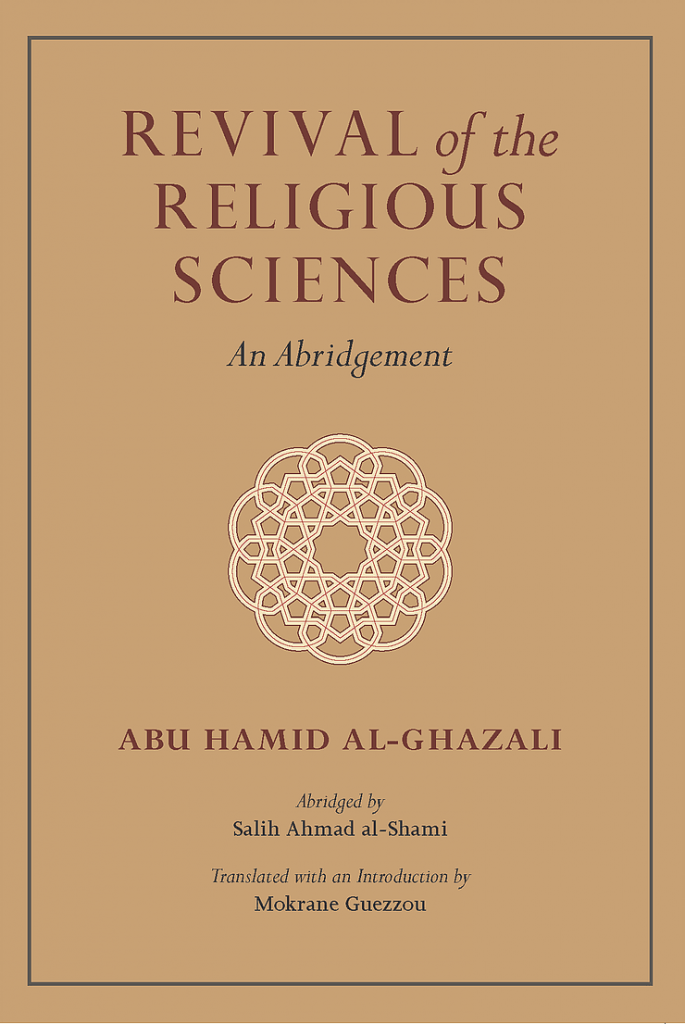(Imam) Ghazali is Muhammad ibn Muhammad ibn Muhammad ibn Ahmad, Abu Hamid Hujjat ai-Islam al-Ghazali al-Tusi
(Imam) Ghazali is Muhammad ibn Muhammad ibn Muhammad ibn Ahmad, Abu Hamid Hujjat ai-Islam al-Ghazali al-Tusi, the Shafi’i Imam, Proof of Islam, and Sufi adept born in Tabiran, near Tus Gust north of present-day Mashhad, Iran), in 450/1058. The Imam of his time, nicknamed Shafi’i the Second for his legal virtuosity, he was a brilliant intellectual who first studied jurisprudence at Tus and then travelled the Islamic world to Baghdad, Damascus, Jerusalem, Cairo, Alexandria, Mecca, and Medina, taking Sacred Knowledge from its masters, among them the Imam of the Two Sanctuaries Juwayni, with whom he studied until the Imam’s death, becoming at his hands a scholar in Shafi’i law, logic, tenets of faith, debate, and in the rationalistic doctrines of the philosophical schools of his time, which he was later called upon to refute. When Juwayni died, Ghazali debated the Imams and scholars of Baghdad in the presence of the vizier Nizam al-Mulk, who was so impressed that he appointed him to a teaching post at the Nizamiyya Academy in Baghdad, where word of his’ brilliance spread and scholars journeyed to hear him. ...Read More
His worldly success was something of a mixed blessing, and in mid-career, after considerable reflection, he was gripped by an intense fear for his soul and his fate in the afterlife, and he resigned from his post, travelling first to Jerusalem and then to Damascus to purify his heart by following the way of Sufism. In Damascus, he lived in seclusion for some ten years, engaged in spiritual struggle and the remembrance of Allah, at the end of which he emerged to produce his masterpiece
lhya’ ‘ulum aI-din [Giving life to the religious sciences], a classic among the books of the Muslims about internalising god fearingness (taqwa) in one’s dealings with Allah, illuminating the soul through obedience to
Him, and the levels of believers’ attainments therein. The work shows how deeply Ghazali personally realised what he wrote about, and his masterly treatment of hundreds of questions dealing with the inner life that no one had previously discussed or solved is a performance of sustained excellence that shows its author’s well-disciplined legal intellect and profound appreciation of human psychology. He also wrote nearly two hundred other works on the theory of government, Sacred Law, refutations of philosophers, tenets of faith, Sufism, Koranic exegesis, scholastic theology, and bases of Islamic jurisprudence. He died in Tabiran in
505/1111 (al-A ‘lam (y136), 7.22;
lhya’ ‘ulum ai-din (y39), 1.330;
al-Munqidh min al-dalal (y41),
46-50; al-Shita (y116), 2.602;N; and n).
(Keller, Nuh Ha Mim. Reliance of the Traveller: A Classic Manual of Islamic Sacred Law. Rev. ed. Beltsville, MD: Amman, 1996)
https://en.wikipedia.org/wiki/Al-Ghazali



